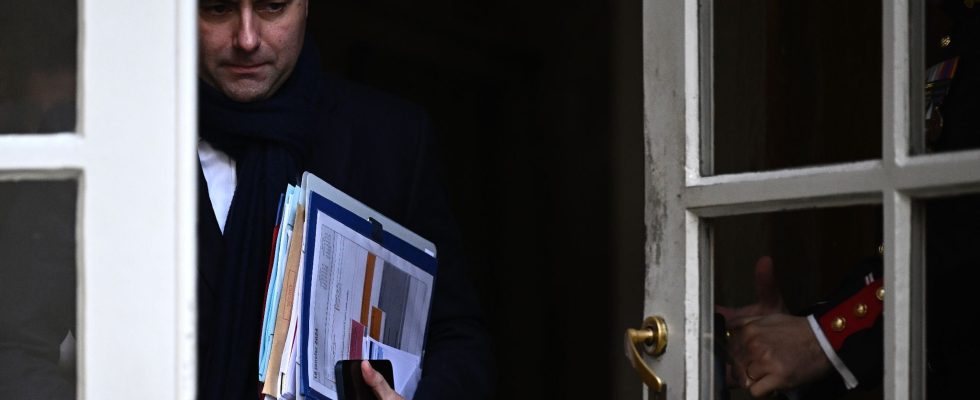Gone are the days when the use of artificial intelligence in combat was science fiction. Since the start of the war in Ukraine, AI has been involved in the conflict and offers its users a new range of strategies. Ukraine is “the best testing ground for all the latest technologies, because here you can test them in real conditions”, assures Mykhailo Fedorov, Ukrainian Minister of Digital Transformation, in the columns of the Time Magazine.
In two years of war, many companies from the four corners of the globe have sought to establish themselves in Ukraine, which has become a veritable laboratory for new technologies. Starting with the data analysis company Palantir Technologies which, today, has conquered “more than half a dozen Ukrainian agencies, including the ministries of Defense, Economy and Education “, it is specified in the American magazine.
Added to this are American giants like Microsoft, Amazon, Google and Starlink who have helped kyiv’s forces fight against Russian cyberattacks and protect government data. In addition, the facial recognition company Clearview AI helped identify 230,000 Russian soldiers who participated in the military invasion in Ukraine, “which made it possible to link them to evidence of alleged war crimes”, underlines the Time Magazine.
But the United States is far from being the only ones to have grabbed hold of Ukraine’s defense potential. The Turkish manufacturer of armed drones Baycar said last February that a production site would be built in Ukraine. The factory, which is expected to be completed within a year, will employ up to 500 people and produce 120 drones each year. Furthermore, German drone producer Quantum Systems recently announced that it would open a research and development center in kyiv.
The French army must “turn the corner” on AI
On the French side, investment in Ukraine involves improving its military equipment, and in particular its Caesar cannon, thirty examples of which have been sent to kyiv since the start of the war. In January, during the launch of the “Artillery for Ukraine” coalition, the Minister of the Armed Forces, Sébastien Lecornu, announced that the development of this machine would be entrusted to the German start-up Helsing, specializing in military artificial intelligence.
Created in 2021, the company is now valued at 1.5 billion euros, after a new fundraising of more than 200 million euros last fall. Helsing thus became the first and only defense AI unicorn in Europe, as reported The new factory. The team of this start-up has also been enriched by some big French names in aeronautics and defense. Starting with the former digital boss at Airbus, Marc Fontaine, but also Antoine de Braquilanges, formerly of Palantir France, respectively president and general manager of Helsing.
For the French Minister of the Armed Forces, defense can no longer do without artificial intelligence. “Either the French army takes the turn towards AI, or it drops out,” he told the Echoes this Friday March 8. The finance law for 2024 also devotes 130 million euros to Defense AI, it is indicated on the Ministry of the Armed Forces website. This budget will be doubled by the end of the 2024-2030 military programming law.
And to achieve this objective, Sébastien Lecornu presented the new agency for defense AI, called “Amiad”. “The challenge is nothing more and nothing less than guaranteeing the survival of the sovereign and autonomous model of French defense,” explains the minister. Echoes. Amiad will thus see the light of day next July, will be allocated 300 million euros per year and must employ, by the end of 2026, some 300 experts, civilians, temporary workers or military personnel. The identity of its future leader is already known: it is Bertrand Rondepierre, a 34-year-old polytechnician and normal student who notably participated in the writing of the French strategy for AI in Cédric Villani’s team.
A research center will be established in Palaiseau, on the Ecole Polytechnique site, while a technical center will be located near Rennes, in Bruz, on the site specializing in information management and cyber of the General Directorate of armaments (DGA). Furthermore, a “classified super computer” – “the largest dedicated to AI and classified in Europe”, assures the Ministry of the Armed Forces in its press release – will be installed at Mont-Valérien, in Suresnes (Hauts-de-Seine) .
The space war with AsterX
In addition to artificial intelligence, space is one of the major defense challenges, constituting a place for potential commercial and military conflicts. The war of space espionage began in 2018, when a Russian Loutch-Olymp satellite tried to spy on the Franco-Italian military telecoms satellite Athena-Fidus. “Trying to listen to your neighbors is not only unfriendly. It is called an act of espionage,” lamented the former Minister of the Armed Forces, Florence Parly.
Threats which encouraged France to create the Space Command (CDE), born in 2019. Then, from 2021, to organize each year a special military exercise, called AsterX – in reference to the first French satellite launched in 1965, named Asterix. The fourth edition of this exercise has been taking place since March 4 and until March 15, in the premises of the National Center for Space Studies (CNES), in Toulouse.
“In 2024, the training takes up the geopolitical context of the “Orion” exercise – a major joint exercise aimed at large-scale combat training involving all environments and fields of conflict,” explains the Ministry of the Army. ‘Air and Space on his website.
Cyberattacks, hostile rapprochements, nanosatellite drops… The approximately 140 participants, military and civilian, from around fifteen nations, are confronted with “the entire spectrum of space warfare”, specifies the ministry. Industrial partners in the space sector (Agenium, ArianeGroup, Crisotech, Exotrail, Safran, Sopra Stéria, MBDA) are also participating in order to confront emerging threats “to develop a common culture of military space operations, the basis of reinforced strategic solidarity” .
